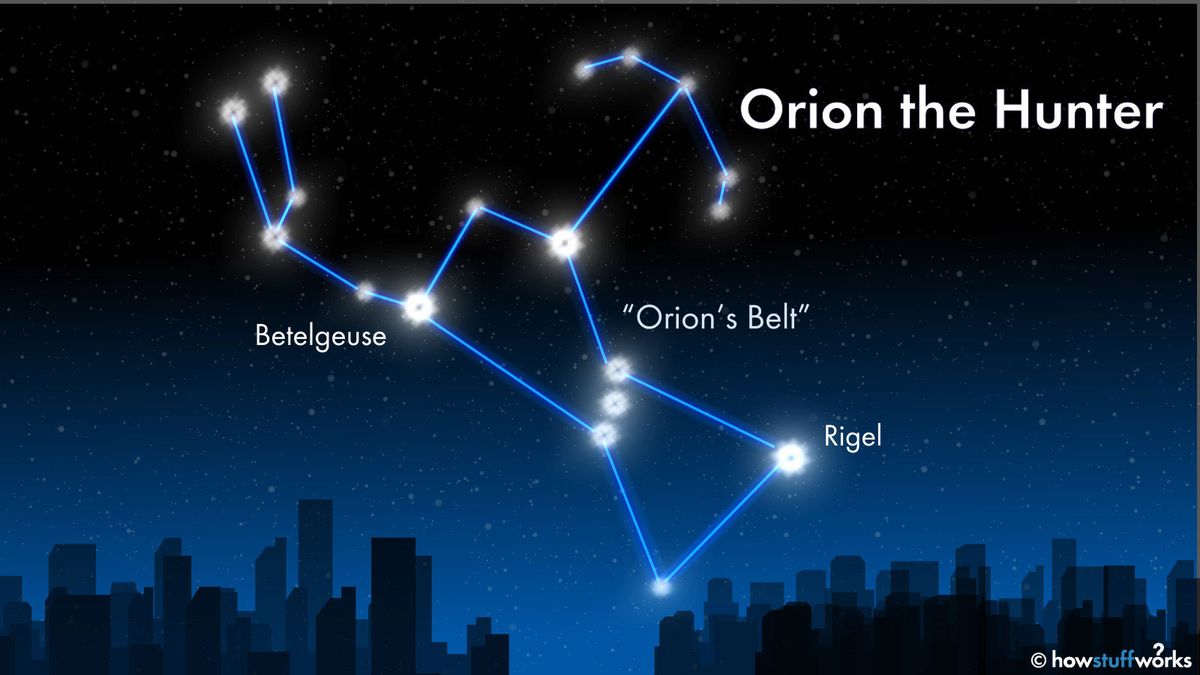Meteor Shower News
Discussion
As meteor showers are regular events each year, I thought it would be worthwhile having a thread dedicated to the various showers as they occur.
Tonight it's the turn of The Geminid shower. It's supposed to be one of the better showers and will, as the name suggests, appear to radiate from the constellation of Gemini, just to the left of Orion.
There is no bright moon around this evening to spoil the show so, depending on cloud conditions, a reasonable number of meteors should be visible.
Tonight it's the turn of The Geminid shower. It's supposed to be one of the better showers and will, as the name suggests, appear to radiate from the constellation of Gemini, just to the left of Orion.
There is no bright moon around this evening to spoil the show so, depending on cloud conditions, a reasonable number of meteors should be visible.
Orion is one of the most prominent and obvious constellations in the sky - if you know which direction to look.
Basically, look to the south anytime after the sky has got properly dark. Orion starts more or less in the south east and gradually climbs in the sky as the night progresses.
With meteor showers, you don't have to look in a precise spot in the sky. The meteors appear to emanate from a particular spot but they will streak across a large part of the sky. The basic thing as far as the Geminids is to look generally south and up and you are bound to see a few.
Here's a diagram of what Orion looks like. It really is a very obvious sight.

Basically, look to the south anytime after the sky has got properly dark. Orion starts more or less in the south east and gradually climbs in the sky as the night progresses.
With meteor showers, you don't have to look in a precise spot in the sky. The meteors appear to emanate from a particular spot but they will streak across a large part of the sky. The basic thing as far as the Geminids is to look generally south and up and you are bound to see a few.
Here's a diagram of what Orion looks like. It really is a very obvious sight.

I heard that discussion as well. It's not strictly true that ALL meteors are heading "down" towards the earth's surface.
A meteor is visible when a piece of space dirt, often no bigger than a grain of sand, which is orbiting the sun enters the earth's atmosphere at high speed and is burned up by the huge amounts of aerodynamic friction and compressive forces generated with the atmosphere.
Although in most cases it is likely that the angle at which the particle enters the atmosphere is in a generally downward direction, there will be some particles which might actually be heading upwards as they graze the atmosphere - or moving more or less parallel to the earth's surface. Some meteors pass through the atmosphere and and out again and go back into an amended orbit about the sun or earth, depending on how much velocity they lost during the encounter. These meteors are known as "earth grazers".
This one was so bright it was caught on camera in broad daylight - back in 1972.
https://www.youtube.com/watch?v=4WlCfuPrszU
A meteor is visible when a piece of space dirt, often no bigger than a grain of sand, which is orbiting the sun enters the earth's atmosphere at high speed and is burned up by the huge amounts of aerodynamic friction and compressive forces generated with the atmosphere.
Although in most cases it is likely that the angle at which the particle enters the atmosphere is in a generally downward direction, there will be some particles which might actually be heading upwards as they graze the atmosphere - or moving more or less parallel to the earth's surface. Some meteors pass through the atmosphere and and out again and go back into an amended orbit about the sun or earth, depending on how much velocity they lost during the encounter. These meteors are known as "earth grazers".
This one was so bright it was caught on camera in broad daylight - back in 1972.
https://www.youtube.com/watch?v=4WlCfuPrszU
Gassing Station | Science! | Top of Page | What's New | My Stuff



